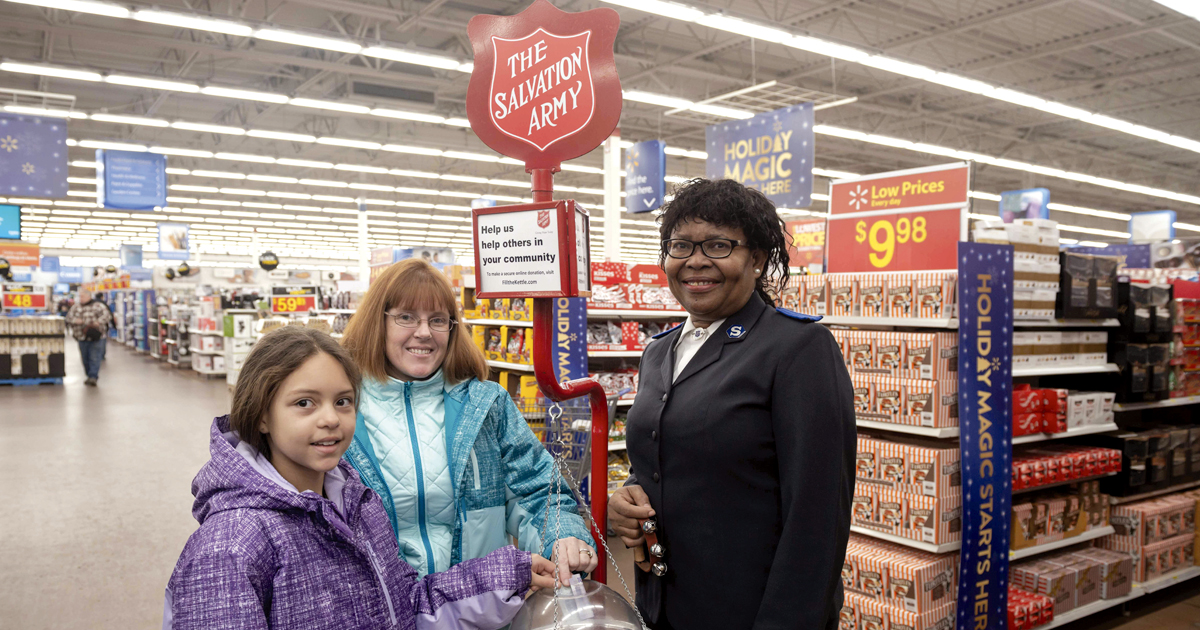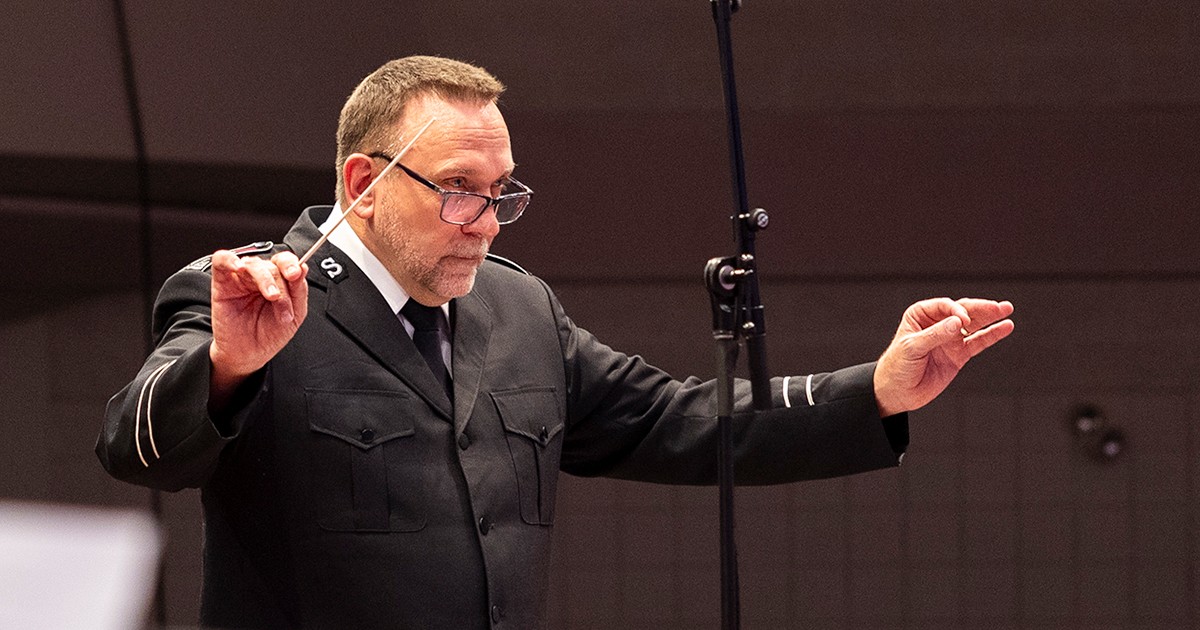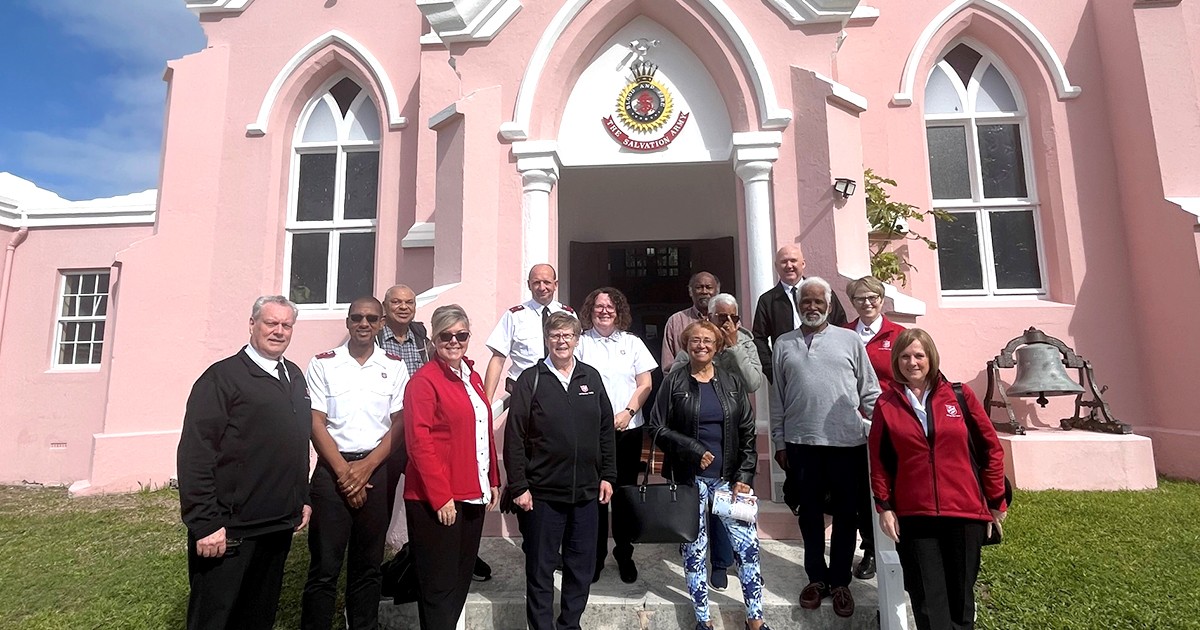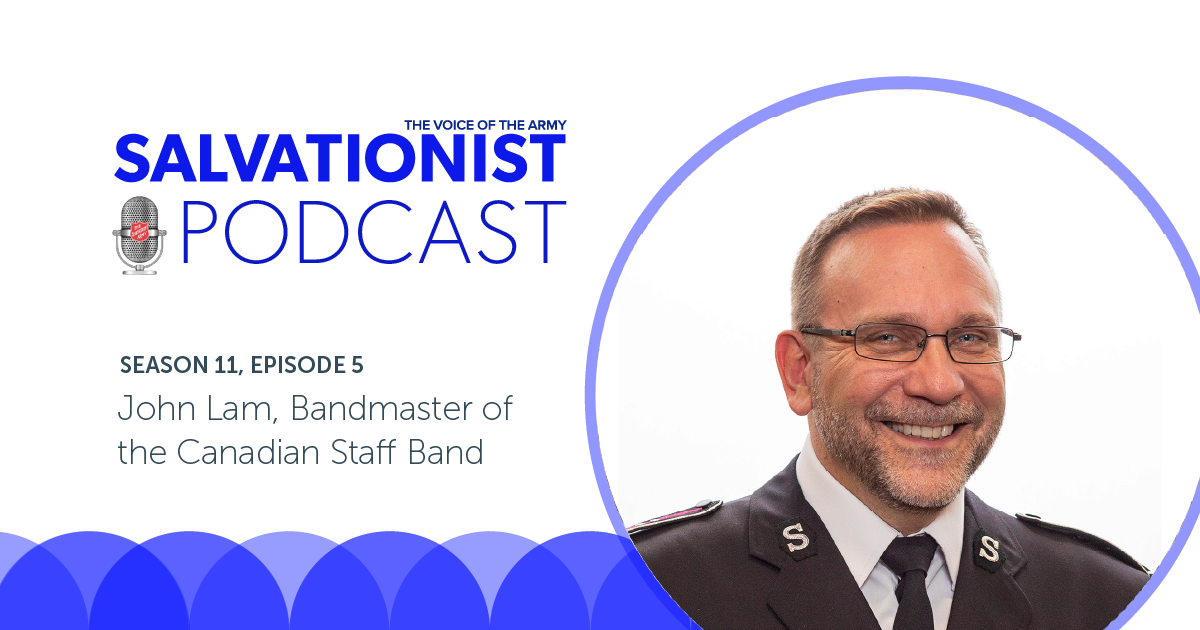Imagine a much younger version of me, dressed in an unzipped winter coat and with woolen mittens, attached by a string, dangling from each cuff. Still-melting snow pools beneath my oversized boots as I stand next to my corps officer (who moonlighted as my dad) while he takes his turn at a Salvation Army Christmas kettle.
Our location is a festively decorated shopping mall and, occasionally, an exhausted shopper trying to balance their Woolco and Kmart shopping bags will stop and search their pocket or purse for a reddish-brown two-dollar bill (remember those?) to donate to the kettle. Often, their generosity is accompanied by a smile and a word of appreciation for the “good work of the Army” before they quickly run off to complete their Christmas shopping.
As the notes of Winter Wonderland pipe from the mall sound system, I look up at my father with a sense of pride. Even though I’m still somewhat oblivious to all of the societal ills that The Salvation Army aims to address, I know that my dad represents a mighty army of people who do so much to help others.
Fast forward a few decades and a similar scene unfolds. But now I’m the dad taking a shift at a Christmas kettle and the child standing next to me is my son. While the hurrying crowds, the balancing of shopping bags and even the music filling the air around us are all much the same as that memory from my childhood, I can’t help but sense that some of my interactions with the public are not quite the same as they once were for my father.
For anyone who has volunteered their time and energy at one of the nearly 2,000 kettle locations across our vast territory, you, too, may have noticed that not every individual is eager to donate to The Salvation Army. As the cost of living continues to skyrocket for us all, and as more and more community groups and charitable organizations ask the public for financial support, we will no doubt continue to experience challenges to our annual fundraising efforts and an unwillingness by some to support our ministries.
But even more challenging is that the interactions I have had with potential kettle donors in recent years quite often reveal that differences and debate over ideology, theology—or whatever polarizing “ology” that people like to argue over—have also become reasons why some will refrain from tapping their credit card or dropping a toonie in a Salvation Army kettle this year.
While this reality burdens me, I am also reminded that The Salvation Army is no stranger to adversity. Any student of the Army’s history will tell you that in the late 19th century, many people were opposed to The Salvation Army’s public efforts and ministry. Our advocacy for social mission and the promotion of total abstinence from alcohol was often mocked, and more than one early Salvationist was the victim of rotten eggs, bricks or liquor bottles thrown in their direction during open-air services and public marches.
More recent generations of Salvationists can share examples of verbal insults, or even the threat of physical attack in the rare place that still offers pub or street ministry. Yet, The Salvation Army presses on and continues to do the “good work” required.
And so, as I stand at yet another Christmas kettle, painfully aware of the many people who pass by without offering their support, and the few who verbally express their dislike of the denomination and organization that I love and have been called to serve within, I sometimes wonder what the future of our work and mission will require of me should adversity come my way.
And then with perfect timing, an elegantly dressed woman approaches the kettle with donation in hand and a smile beaming from ear to ear. As her gift drops into the little red kettle, she says loudly—not just for me, but for the ears of my ever-inquisitive son beside me—“The Salvation Army saved my daughter’s life. Thank you for being there when she needed you.”
And I can’t help but wonder, is the little boy beside me proud of the truth that his dad, too, represents a mighty army of people who do so much to help others?
Major Sheldon Bungay is the corps officer at St. John’s Temple, N.L.
This story is from:










Leave a Comment